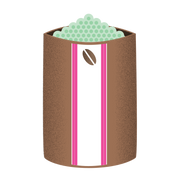Quarter Horse Coffee Club
Exclusive coffees for ✛ Plus plan subscribers

Coffee Profile

Varietals
Various

Process
Washed

Producer
Mondul Estate

Notes
Red Apple, Milk Chocolate & Maple Syrup
More about the coffee, producer & region.
The Estates (Burka-Selian-Mondul) have about 200 permanent staff, and 200 daily causal staff although in the peak of the harvest season, there can be up to 5,000 staff involved in picking and processing. All permanent staff are provided with housing on the Estates (in four different camps), and the minimum salary is set at 20% above the government minimum requirement. Staff have social security and Labour Union membership included in their contracts, and an Estate credit union also offer loans and advice for education, health and house construction.



About the Region
One of the last and certainly the largest indigenous forests in Arusha, Burka Forest holds the natural spring which first gave Burka its name over 100 years ago. The preservation of these forests has led to a dramatic increase in the diversity and wealth of wildlife in this area. Everything from Dik Diks, to the Madagascar Squacco Heron, to Velvet monkeys, to the last baboon colony in the area; enjoys the protection of Burka’s strict conservation policies, along with over 120 species of bird, attracted by the local flora and natural grassland and forest areas. The Estate trains dedicated wildlife wardens to protect and conserve this wildlife.
About the Process
Ripe cherries delivered to mill within 6 hours of picking, where cherries are graded, sorted, and then fed through a Pinhalense de-mucilage machine, before being placed into soaking tanks. Mondul has a natural spring which supplies the wet mill, which is then recirculated before disposal into seepage pits. Waste cherry pulp is mixed with worms to produce organic fertiliser, which is then re-used on the estates. Parchment is then sorted and thoroughly rinsed in washing channels, and placed onto raised African drying tables. The drying period generally lasts for up to 7 days, until moisture level reaches 12% or lower, with regular turning, particularly in the first 48 hours to ensure even rates of drying. Parchment is transported to Moshi for milling and bagging, and then to Dar Es Salaam for export. Burka has its own cupping lab on site, and samples of each day’s lot from Mondul are cupped and assessed for quality.
How can I get this coffee?
Available exclusively in July on our ✛ Plus QHC Club Membership
Join our QHC Club today...








